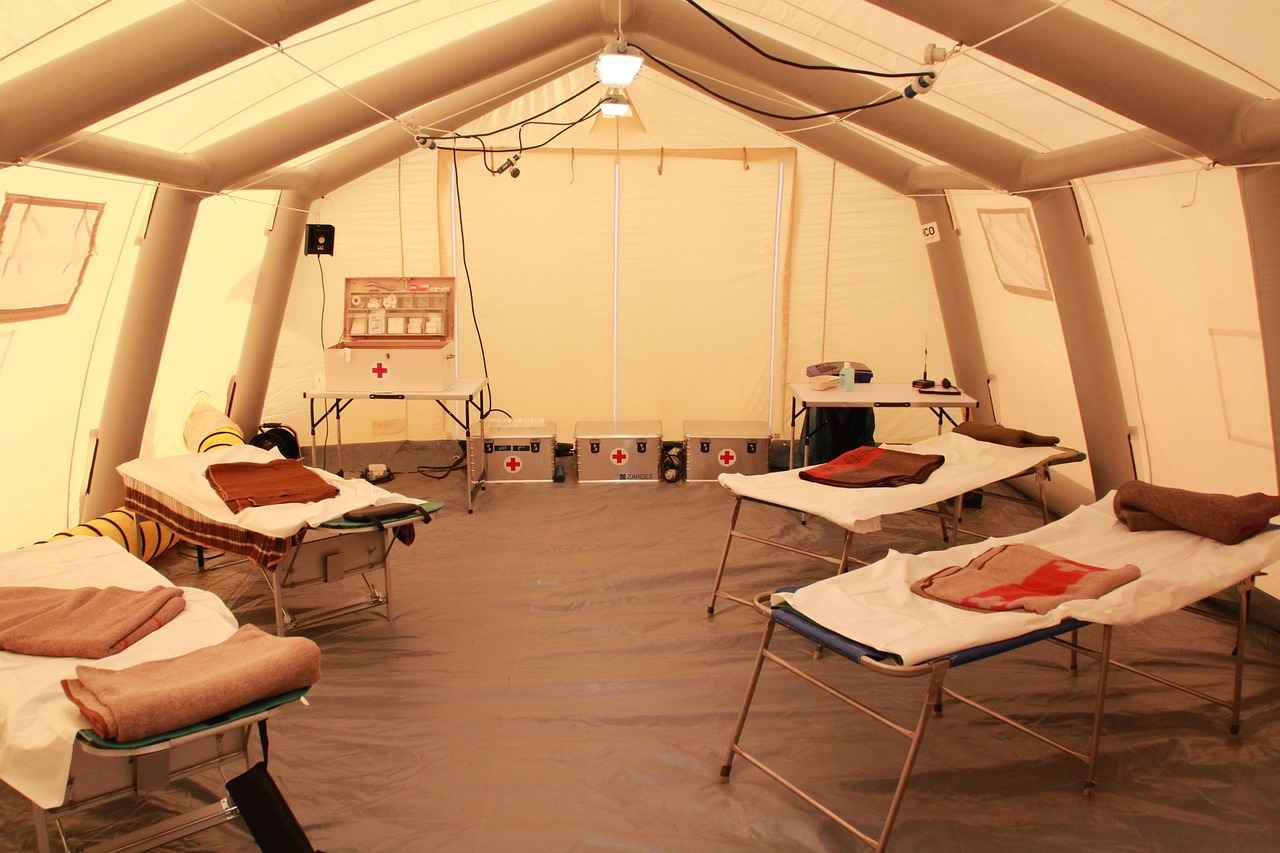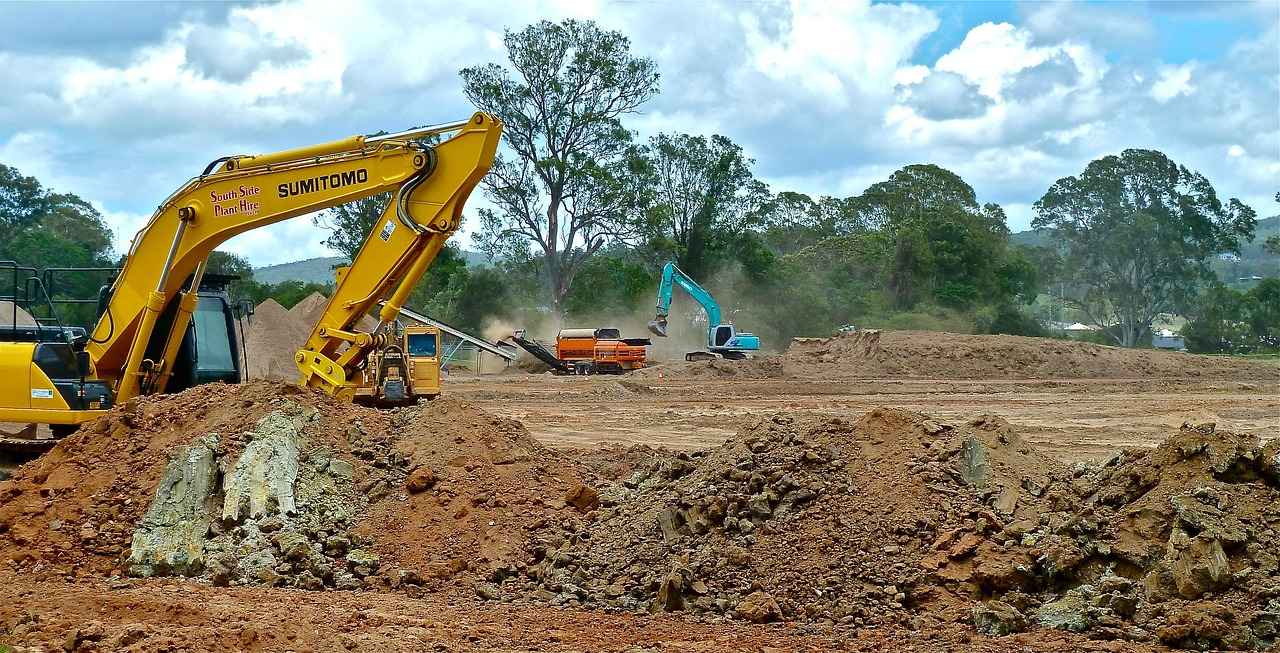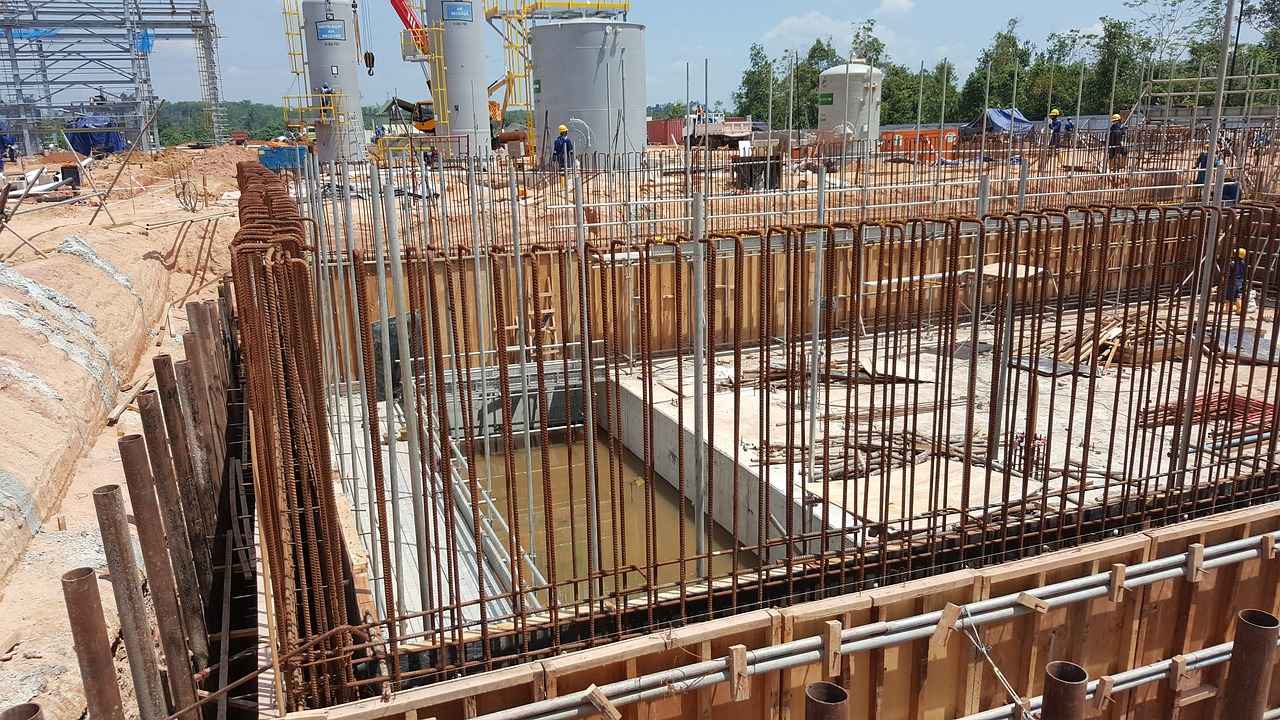Understanding the timeline of a civil lawsuit is essential for anyone involved in the legal process. The journey from filing a lawsuit to reaching a settlement can be complex and varies significantly based on numerous factors. In this article, we will delve into the various timelines associated with civil lawsuits, detailing the factors that influence settlement duration and offering insights into the legal process.
Several crucial elements can influence how long a civil lawsuit takes to settle. These include:
- Case Complexity: More intricate cases often require extensive evidence and expert testimonies, prolonging the process.
- Court Schedules: The availability of court dates can significantly affect how quickly a case moves through the system.
- Negotiation Processes: The willingness of both parties to negotiate can either expedite or prolong the settlement process.
Pre-trial procedures can add considerable time to a civil lawsuit. These stages include:
- Discovery: This phase involves gathering evidence and can take several months, depending on the complexity of the case.
- Motions: Various motions can be filed, which may lead to delays if contested.
- Settlement Discussions: Initial talks can either lead to a quick resolution or extend the timeline significantly.
The discovery process is a critical stage where both parties gather information. This can include:
- Depositions: Sworn statements from witnesses can be time-consuming.
- Document Requests: Both parties may request extensive documentation, which can delay proceedings.
- Interrogatories: Written questions that require detailed responses can also prolong this phase.
The duration of the discovery phase can vary widely:
- It may last from a few weeks to several months, influenced by the complexity of the case and cooperation levels between parties.
Motions are legal requests made to the court that can significantly impact the lawsuit’s timeline. Common types include:
- Motion to Dismiss: If granted, this can end a case early.
- Motion for Summary Judgment: This can also lead to a quicker resolution, but if contested, it may prolong the case.
Settlement negotiations can either speed up or slow down the resolution process. Key stages include:
- Initial Offers: The first proposal can set the tone for negotiations.
- Counteroffers: This back-and-forth can extend the timeline, especially if parties are far apart.
- Mediation: A structured negotiation can facilitate quicker settlements, but may take time if positions are entrenched.
Understanding the average duration for various types of civil lawsuits can provide clarity:
- Personal Injury Lawsuits: Typically take 1-2 years to settle, depending on case specifics.
- Contract Disputes: These can range from a few months to several years, influenced by the complexity of the issues at stake.
If a civil lawsuit does not settle, it may proceed to trial, which can significantly extend the overall timeline. Key aspects include:
- Trial Duration: Trials can last from a few days to several weeks, depending on the complexity of the case.
- Post-Trial Processes: Additional steps, such as appeals, can further prolong the timeline.

What Factors Affect the Duration of a Civil Lawsuit?
Understanding the elements that influence the length of a civil lawsuit is crucial for both plaintiffs and defendants. The duration of a civil lawsuit can vary significantly based on several factors, which can be categorized into three primary areas: case complexity, court schedules, and negotiation processes. Each of these factors plays a pivotal role in determining how long a lawsuit will take to resolve.
The complexity of a case is one of the most significant factors affecting its duration. Cases involving multiple parties, extensive evidence, or intricate legal issues tend to take longer. For instance, a simple contract dispute may be resolved quickly, while a personal injury case involving medical malpractice could involve numerous expert testimonies and detailed evidence collection, extending the timeline considerably.
Court schedules also play a critical role in the length of civil lawsuits. Each court has its own calendar, and delays can occur due to a congested docket. When courts are busy, hearings and trials may be postponed, leading to longer wait times for resolution. Additionally, the availability of judges and the efficiency of court staff can impact how quickly a case moves through the system.
The willingness of both parties to engage in settlement negotiations can significantly influence the duration of a civil lawsuit. If both parties are open to discussion and compromise, cases can often be settled more quickly. However, if negotiations stall or if one party is unwilling to negotiate, the case may drag on for months or even years. Mediation can be a useful tool in these situations, providing a structured environment for discussions that may expedite the resolution process.
Pre-trial procedures can further complicate timelines. The discovery process, which involves gathering evidence and information from both parties, is often one of the most time-consuming stages. This phase can include depositions, document requests, and interrogatories, and can last anywhere from a few weeks to several months, depending on the complexity of the case.
- Disputes over evidence can arise, leading to delays.
- Delays in document production can extend the timeline.
- The need for expert testimonies can complicate proceedings.
Motions, such as motions to dismiss or motions for summary judgment, can also impact the timeline of a civil lawsuit. These motions can lead to delays if contested, as the court must review and rule on each motion before proceeding with the case.
Settlement negotiations can either expedite or prolong a civil lawsuit. The effectiveness of communication between parties can greatly affect how quickly a case settles. Typically, the stages of settlement negotiations involve:
- Initial offers
- Counteroffers
- Possibly mediation
Each stage can vary in length based on the parties’ willingness to compromise.
Different types of civil lawsuits have varying timelines. For example, personal injury lawsuits often take 1-2 years to settle, while contract disputes can range from a few months to several years, depending on the specifics of the case.
If a civil lawsuit does not settle, it may proceed to trial, significantly extending the overall timeline. Trials can last anywhere from a few days to several weeks, depending on the complexity of the case and the number of witnesses involved. Additionally, post-trial processes, such as appeals, can further prolong the resolution of a case.

How Do Pre-Trial Procedures Impact Settlement Timeframes?
In the realm of civil litigation, understanding the timeline is crucial for both plaintiffs and defendants. One of the most significant phases that can influence the duration of a lawsuit is the pre-trial procedures. These procedures not only set the stage for the trial but also can extend the overall timeline significantly.
Pre-trial procedures can dramatically affect how long a civil lawsuit takes to reach a resolution. These procedures encompass various stages, including discovery, motions, and settlement discussions. Each of these components can vary greatly in duration based on numerous factors, such as the complexity of the case and the responsiveness of the parties involved.
The discovery process is often one of the most time-consuming phases of a civil lawsuit. During discovery, both parties gather evidence and information that may be pertinent to the case. This phase includes:
- Depositions: Sworn statements taken from witnesses.
- Document Requests: Requests for relevant documents from the opposing party.
- Interrogatories: Written questions that must be answered under oath.
Due to the extensive nature of these tasks, discovery can last anywhere from a few weeks to several months. The willingness of both parties to cooperate and the complexity of the information requested can further influence this timeline.
Numerous challenges can arise during the discovery phase, potentially prolonging the process:
- Disputes Over Evidence: Conflicts regarding what information is relevant or admissible can lead to delays.
- Delays in Document Production: If one party is slow to provide requested documents, it can stall the entire process.
- Expert Testimonies: The need for expert witnesses can complicate and extend the timeline as their availability and schedules must be coordinated.
Motions are another critical aspect of pre-trial procedures. These can include motions to dismiss the case or motions for summary judgment. Each of these motions can take time to prepare and argue in court, leading to further delays. If a motion is contested, it may require additional hearings, thereby extending the timeline even more.
Settlement discussions are designed to resolve the case without going to trial. However, these negotiations can either expedite or prolong the lawsuit’s duration. The effectiveness of communication between parties and their willingness to compromise play pivotal roles in how quickly a settlement can be reached.
Settlement negotiations typically unfold in several stages:
- Initial Offers: The parties present their first proposals.
- Counteroffers: Each side may respond with revised offers, which can extend the negotiation process.
- Mediation: In some cases, a neutral third party may help facilitate discussions, potentially leading to a quicker resolution.
Mediation can provide a structured environment for negotiations, often resulting in quicker settlements. However, if the parties are significantly apart in their positions, mediation may prolong the process as they work to bridge the gap between their demands.
In conclusion, the pre-trial procedures, encompassing discovery, motions, and settlement discussions, play a crucial role in determining the overall timeline of a civil lawsuit. Understanding these components can help parties manage their expectations and navigate the complexities of the legal process more effectively.
What is the Discovery Process?
In the realm of civil litigation, understanding the discovery process is essential for both plaintiffs and defendants. This stage serves as a critical foundation for building a case, as it involves the systematic gathering of evidence and information from both parties. The discovery process is often lengthy and can be quite complex, requiring careful navigation through various legal protocols.
The discovery process is a pre-trial phase where both parties exchange relevant information. This includes:
- Depositions: Sworn testimonies taken from witnesses or parties involved, which can provide crucial insights into the case.
- Document Requests: Formal requests for documents that are pertinent to the case, which can include contracts, emails, and other records.
- Interrogatories: Written questions that one party sends to another, requiring a written response under oath.
Discovery is vital because it ensures that both sides are aware of the evidence that will be presented at trial. This transparency helps to:
- Facilitate informed decision-making regarding settlement options.
- Reduce surprises during the trial.
- Encourage fair play by ensuring both parties have access to the same information.
The duration of the discovery process can vary significantly. Typically, it can last from a few weeks to several months. Factors that influence this timeline include:
- Case Complexity: More complex cases with numerous parties or intricate legal issues generally require more time for discovery.
- Cooperation of Parties: If both parties are willing to cooperate and share information promptly, the process can move more quickly.
- Court Schedules: The availability of the court can also impact how long the discovery phase lasts.
While the discovery process is designed to be straightforward, several challenges can arise:
- Disputes Over Evidence: Parties may disagree on what evidence is relevant or should be disclosed, leading to potential delays.
- Delays in Document Production: Sometimes, the production of documents can take longer than expected, particularly if they are voluminous or require extensive review.
- Need for Expert Testimonies: If expert witnesses are required, coordinating their availability and obtaining their reports can prolong the discovery phase.
The information gathered during the discovery process often plays a crucial role in settlement negotiations. With a clearer understanding of the strengths and weaknesses of each side’s case, parties are better positioned to negotiate effectively. A well-prepared party may leverage the information obtained during discovery to push for a favorable settlement.
In summary, the discovery process is a fundamental aspect of civil litigation that can significantly influence the timeline and outcome of a lawsuit. Understanding its intricacies helps parties navigate the legal landscape more effectively, ensuring that they are prepared for the challenges that lie ahead.
How Long Does Discovery Typically Last?
In the realm of civil litigation, the discovery phase is a critical component that can significantly influence the overall timeline of a lawsuit. This stage is where both parties engage in gathering pertinent information, evidence, and documentation to build their respective cases. Understanding how long discovery typically lasts is essential for anyone involved in a civil lawsuit.
Discovery can last anywhere from a few weeks to several months. The exact duration is largely determined by several factors:
- Case Complexity: More complex cases that involve multiple parties or intricate legal issues tend to require longer discovery periods.
- Volume of Evidence: The amount of evidence that needs to be gathered, including documents, emails, and other records, can extend the timeframe.
- Cooperation Between Parties: The willingness of both parties to cooperate and share information can either expedite or delay the process.
The discovery process encompasses various activities, including:
- Depositions: Sworn statements taken from witnesses or parties involved in the case, which can be time-consuming.
- Document Requests: Formal requests for documents relevant to the case, which may involve extensive review and production.
- Interrogatories: Written questions that one party sends to another, requiring detailed responses.
Each of these activities can contribute to the length of the discovery phase, depending on the complexity and volume of the information requested.
Several challenges can arise during the discovery phase, potentially prolonging its duration:
- Disputes Over Evidence: Conflicts regarding what information is relevant or discoverable can lead to delays.
- Delays in Document Production: If one party is slow to produce requested documents, it can stall the entire process.
- Need for Expert Testimonies: Engaging experts to provide testimony or analysis can add additional time to the discovery phase.
Effective communication between parties can significantly shorten the duration of the discovery process. When both sides are open to discussions and negotiations regarding the information being exchanged, they can avoid unnecessary disputes and expedite the production of documents. Establishing clear timelines and expectations at the outset can also help streamline the process.
Extended discovery periods can have several consequences:
- Increased Legal Costs: Longer discovery phases typically lead to higher legal fees, as attorneys spend more time on the case.
- Delays in Resolution: Prolonged discovery can push back the timeline for trial or settlement, causing frustration for all parties involved.
- Emotional Strain: The longer a case drags on, the more stress and uncertainty it can create for the individuals involved.
In conclusion, understanding the typical duration of the discovery phase, the factors that influence it, and the challenges that can arise is essential for anyone navigating a civil lawsuit. While discovery can be a lengthy process, effective communication and cooperation between parties can help mitigate delays and foster a more efficient resolution.
What Challenges Can Arise During Discovery?
In the realm of civil litigation, the discovery phase serves as a crucial step in the legal process, allowing both parties to gather pertinent information and evidence. However, this stage is often fraught with challenges that can significantly extend its duration. Understanding these challenges is essential for both plaintiffs and defendants as they navigate the complexities of a lawsuit.
- Disputes Over Evidence: One of the most common issues during discovery is disputes regarding the admissibility and relevance of evidence. Parties may disagree on what constitutes relevant information, leading to lengthy negotiations and potential motions to compel.
- Delays in Document Production: The process of gathering and producing documents can be time-consuming. Parties may face delays due to the volume of documents requested or issues related to data retrieval, especially in cases involving electronic evidence.
- Need for Expert Testimonies: In many cases, expert witnesses are necessary to provide specialized knowledge on complex issues. Securing these testimonies can be challenging and often requires additional time for research and preparation.
- Compliance with Discovery Rules: Each jurisdiction has specific rules governing discovery, which can complicate the process. Parties must ensure compliance with these rules, and any missteps can lead to sanctions or further delays.
- Interrogatories and Depositions: The process of conducting interrogatories (written questions) and depositions (oral questioning) can also introduce delays. Scheduling conflicts, uncooperative witnesses, or the need for additional follow-up questions can prolong these processes.
The cumulative effect of these challenges can lead to significant delays in the overall timeline of a civil lawsuit. For instance, if disputes arise over document production, it may necessitate court intervention, which can further extend the discovery phase. Additionally, if expert testimonies are required, the time taken to prepare these experts can add weeks or even months to the process.
To minimize the impact of these challenges, parties can take several proactive steps:
- Early Communication: Establishing open lines of communication between parties can help address potential disputes before they escalate.
- Thorough Planning: Developing a detailed discovery plan that outlines timelines and expectations can aid in keeping the process on track.
- Utilizing Technology: Leveraging technology for document management and communication can streamline the discovery process and reduce delays.
- Engaging Experienced Legal Counsel: Having knowledgeable attorneys who understand the intricacies of discovery can help navigate challenges effectively.
In conclusion, while the discovery phase is essential for building a case, it is not without its challenges. By understanding these potential hurdles and taking proactive measures, parties involved in civil lawsuits can better navigate the complexities of the discovery process, ultimately leading to a more efficient resolution of their legal matters.
What Role Do Motions Play in Civil Lawsuits?
In the intricate landscape of civil lawsuits, motions serve as pivotal tools that can influence the direction and pace of legal proceedings. These formal requests made to the court can significantly alter the timeline of a case, especially when they are contested. Understanding the role of motions, such as motions to dismiss and motions for summary judgment, is essential for both plaintiffs and defendants navigating the legal system.
Motions can introduce substantial delays in the progression of a civil lawsuit. When a party files a motion, the opposing party typically has the opportunity to contest it, leading to additional hearings and extended timelines. The following outlines how different types of motions can affect the duration of a lawsuit:
- Motions to Dismiss: These motions argue that the case should not proceed due to legal insufficiencies. If granted, they can end the lawsuit early. However, if contested, the process can lead to lengthy hearings and additional legal arguments.
- Motions for Summary Judgment: This motion requests the court to rule in favor of one party based on the evidence presented, without going to trial. If the motion is disputed, it can prolong the case as both sides prepare for a more comprehensive examination of the evidence.
When motions are filed, several factors can contribute to delays:
- Response Time: The opposing party usually has a set period to respond to a motion, which can range from a few days to several weeks, depending on court rules.
- Hearing Schedules: Courts often have crowded calendars, meaning that it may take time to secure a hearing date for the motion.
- Additional Filings: Parties may file further documents, such as briefs and affidavits, which can extend the timeline as both sides gather supporting evidence.
The filing of motions can also impact settlement discussions between parties. Often, the uncertainty created by pending motions may lead to:
- Increased Pressure: Parties may feel pressured to settle to avoid the risks associated with a contested motion.
- Stalled Negotiations: If one party believes they have a strong motion, they may be less inclined to negotiate, thinking they can win in court.
The outcomes of motions can have significant implications for the overall lawsuit:
- If Granted: A motion granted can lead to dismissal or a ruling favoring one party, potentially shortening the timeline.
- If Denied: A denied motion may lead to a protracted legal battle, as the case will continue to trial or further pre-trial motions.
In conclusion, motions play a critical role in shaping the timeline of civil lawsuits. Their potential to introduce delays, influence settlement negotiations, and impact the overall outcome of a case cannot be understated. Understanding these dynamics is essential for all parties involved in the legal process.

How Do Settlement Negotiations Influence Case Timelines?
Settlement negotiations play a crucial role in determining the duration of civil lawsuits. The process can either accelerate the resolution of a case or lead to prolonged litigation, depending on various factors. Understanding these dynamics is essential for both plaintiffs and defendants as they navigate the complexities of the legal system.
The effectiveness of settlement negotiations is influenced by several key factors:
- Willingness to Negotiate: The readiness of both parties to engage in discussions can significantly impact the speed of the negotiation process. A cooperative attitude often leads to quicker resolutions.
- Communication Skills: Effective communication between parties can facilitate a smoother negotiation process. Clear and respectful dialogue helps in addressing concerns and finding common ground.
- Legal Representation: Experienced attorneys can navigate negotiations more efficiently, utilizing their expertise to advocate for their clients’ best interests while aiming for a timely settlement.
- Case Complexity: More complex cases typically require more extensive negotiations, as there are often multiple issues to resolve, which can prolong the process.
Settlement negotiations generally unfold in several stages:
- Initial Offers: The process begins with one party presenting an offer, which sets the stage for further discussions.
- Counteroffers: The receiving party may respond with a counteroffer, leading to a back-and-forth exchange that can either bring the parties closer or widen the gap.
- Mediation: If negotiations stall, parties might opt for mediation, where a neutral third party helps facilitate discussions. This can either expedite the process or, if parties remain far apart, prolong it.
Mediation can be a double-edged sword in settlement negotiations. On one hand, it provides a structured environment that encourages compromise. On the other hand, if parties have significantly different positions, the mediation process can take longer than anticipated. The effectiveness of mediation often hinges on:
- Preparation: Well-prepared parties tend to negotiate more effectively, leading to shorter mediation sessions.
- Flexibility: Willingness to adjust positions during mediation can facilitate quicker agreements.
- Expertise of the Mediator: An experienced mediator can guide discussions more efficiently, helping parties to identify areas of agreement and potential solutions.
Despite the best intentions, several challenges can arise during settlement negotiations:
- Emotional Factors: Emotions can run high during negotiations, especially if personal stakes are involved. This can lead to breakdowns in communication and prolonged discussions.
- Misunderstandings: Miscommunication or lack of clarity regarding terms can create confusion, delaying the settlement process.
- Stubbornness: If one or both parties are unwilling to compromise, negotiations can stall, leading to a lengthy dispute.
To enhance the likelihood of a swift resolution, parties can take several proactive steps:
- Set Clear Objectives: Establishing clear goals for what each party hopes to achieve can streamline negotiations.
- Engage in Open Dialogue: Maintaining open lines of communication fosters trust and can help resolve disputes more quickly.
- Utilize Legal Expertise: Involving experienced legal counsel can provide valuable insights and strategies for effective negotiations.
In conclusion, the duration of settlement negotiations in civil lawsuits is influenced by a multitude of factors, including the willingness of parties to engage, the complexity of the case, and the effectiveness of communication. By understanding these elements and taking proactive steps, parties can work towards achieving a timely and satisfactory resolution.
What Are the Stages of Settlement Negotiations?
Settlement negotiations are a critical component of the civil lawsuit process, often influencing the overall duration and outcome of a case. Understanding the stages involved can help both plaintiffs and defendants navigate this complex landscape more effectively.
The process of settlement negotiations typically unfolds in several distinct stages:
- Initial Offers: This is where the negotiation begins, with one party presenting their proposed terms for settlement. The initial offer sets the tone for the discussions and establishes the starting point for negotiations.
- Counteroffers: Following the initial offer, the opposing party will likely respond with a counteroffer. This back-and-forth exchange can continue multiple times, as each side attempts to find common ground.
- Mediation: If the parties cannot reach an agreement through direct negotiation, they may opt for mediation. This involves a neutral third party who facilitates discussions, helping both sides explore potential solutions.
The duration of each stage in settlement negotiations can vary widely, influenced by factors such as the complexity of the case, the willingness of the parties to compromise, and the effectiveness of communication.
- Initial Offers: This stage can take anywhere from a few days to several weeks, depending on how quickly the parties can formulate and communicate their positions.
- Counteroffers: The exchange of counteroffers may extend the negotiation process, potentially lasting weeks or even months if the parties are far apart in their expectations.
- Mediation: Mediation sessions typically last a few hours to a full day, but if the parties are significantly at odds, the mediation process may require multiple sessions over several weeks.
Several factors can impact the length of settlement negotiations:
- Complexity of the Case: More complicated cases often require extensive discussions and may involve multiple issues that need to be resolved.
- Emotional Factors: The emotional stakes involved can affect how willing parties are to negotiate. High emotions can lead to longer negotiations as parties struggle to find common ground.
- Legal Representation: Experienced attorneys can streamline negotiations and facilitate more efficient communication, potentially reducing the time spent in discussions.
To expedite the settlement process, parties can consider the following strategies:
- Clear Communication: Open and honest communication can prevent misunderstandings and help clarify each party’s position.
- Flexibility: Being willing to adjust demands and explore creative solutions can lead to faster resolutions.
- Engaging Professionals: Utilizing mediators or settlement experts can provide valuable insights and facilitate negotiations, potentially speeding up the process.
If negotiations do not result in a settlement, the case may proceed to trial. This can significantly extend the timeline of the lawsuit, as trial preparation and court schedules can add months or even years to the process. Understanding this potential outcome is essential for all parties involved, as it may impact their approach to negotiations.
In summary, the stages of settlement negotiations play a crucial role in the civil lawsuit process. By understanding these stages and the factors that influence their duration, parties can better navigate the complexities of negotiation and work towards a resolution that meets their needs.
How Can Mediation Affect Settlement Time?
Mediation is a valuable tool in the legal landscape, especially when it comes to resolving disputes in a civil lawsuit. It provides a structured environment for negotiation, which can lead to quicker settlements. However, the effectiveness of mediation largely depends on the positions of the parties involved.
The mediation process typically involves a neutral third party, known as the mediator, who facilitates discussions between the disputing parties. The goal is to reach a mutually agreeable solution without the need for a lengthy trial. This process can be beneficial in several ways:
- Cost-Effective: Mediation is generally less expensive than going to trial.
- Confidential: Unlike court proceedings, mediation sessions are private.
- Control: Parties have more control over the outcome compared to a judge’s ruling.
When parties are reasonably close in their positions, mediation can expedite the settlement process. The mediator helps clarify misunderstandings, encourages open communication, and facilitates compromise. This can result in a resolution that is satisfactory to all parties involved. However, there are scenarios where mediation can extend the timeline:
If parties are significantly far apart in their positions, mediation may take longer than anticipated. Here are some factors that can contribute to delays:
- Lack of Willingness to Compromise: If one or both parties are unwilling to budge from their initial positions, the process can stall.
- Complex Issues: Disputes involving multiple issues or parties may require more time to resolve.
- Emotional Factors: High emotions can cloud judgment and hinder productive negotiation.
To maximize the potential for a quick settlement through mediation, parties can employ several strategies:
- Preparation: Thoroughly preparing for the mediation session can help clarify positions and identify areas for compromise.
- Open Communication: Being willing to communicate openly about interests and concerns can foster a more collaborative atmosphere.
- Realistic Expectations: Understanding that not all disputes will resolve quickly can help manage expectations and reduce frustration.
The mediator plays a crucial role in guiding the process. A skilled mediator can:
- Facilitate Discussion: Encourage dialogue between parties to explore underlying interests.
- Provide Neutrality: Offer an unbiased perspective that helps parties see the situation from different angles.
- Encourage Creativity: Suggest innovative solutions that parties may not have considered.
In summary, while mediation can provide a structured environment that fosters quicker settlements, the actual duration of the process is influenced by the positions of the parties involved. By understanding the dynamics of mediation and employing effective strategies, parties can enhance their chances of reaching a timely resolution.

What Are the Average Timelines for Different Types of Civil Lawsuits?
In the realm of civil litigation, understanding the average timelines for various types of lawsuits is essential for all parties involved. Different cases can have drastically different durations based on a variety of factors, including the complexity of the case, the willingness of both parties to negotiate, and the court’s schedule. Below, we delve into the average timelines for some common types of civil lawsuits, offering insights that can help manage expectations.
When it comes to civil lawsuits, timelines can vary significantly. Here are some common categories:
- Personal Injury Lawsuits: These lawsuits often take about 1 to 2 years to settle. Factors such as the severity of the injury, the complexity of the case, and the willingness of both parties to negotiate can influence this duration.
- Contract Disputes: The timeline for contract disputes can range from several months to several years. The specifics of the contract and the issues at hand play a crucial role in determining how long the dispute will last.
- Employment Disputes: Employment-related lawsuits, such as wrongful termination or discrimination claims, typically take about 6 months to 2 years to resolve, depending on the complexity and the number of parties involved.
- Property Disputes: Lawsuits involving property, such as boundary disputes or landlord-tenant issues, can take anywhere from several months to over a year to settle, largely influenced by local laws and the specifics of the case.
The duration of a civil lawsuit is affected by numerous factors:
- Case Complexity: More complex cases often require extensive documentation and expert testimonies, extending the timeline.
- Negotiation Willingness: If both parties are open to negotiation, cases can settle much faster. Conversely, stubbornness can lead to prolonged disputes.
- Court Schedules: The availability of the court can also impact timelines, as busy courts may lead to delays in hearings and trials.
Pre-trial procedures such as discovery and motions can significantly extend the timeline. The discovery phase, which involves gathering evidence, can be particularly time-consuming, often lasting from several weeks to several months. Factors like disputes over evidence and the need for expert testimony can further prolong this stage.
If a civil lawsuit does not reach a settlement, it may proceed to trial, which can add considerable time to the overall process. Trials can last from a few days to several weeks, depending on the case’s complexity and the number of witnesses. Additionally, post-trial processes such as appeals can further extend the timeline, making it crucial for all parties to understand these potential delays.
In summary, the average timelines for civil lawsuits can vary widely based on the type of case and various influencing factors. By understanding these timelines, parties can better prepare for the legal process ahead.
How Long Do Personal Injury Lawsuits Typically Take?
When navigating the legal landscape of personal injury lawsuits, one of the most pressing questions is: Understanding the timeline can help plaintiffs manage their expectations and prepare for the journey ahead.
Personal injury lawsuits often take 1 to 2 years to settle. However, this timeframe can vary significantly based on several factors, including the complexity of the case, the willingness of both parties to negotiate, and the specific circumstances surrounding the injury.
- Case Complexity: More complex cases, such as those involving severe injuries or multiple parties, often require more time to resolve.
- Negotiation Willingness: The readiness of both parties to engage in settlement discussions can greatly affect the timeline. If both sides are open to negotiation, the case may settle more quickly.
- Legal Representation: Experienced attorneys can navigate the legal process more efficiently, potentially reducing the time it takes to reach a settlement.
Pre-trial procedures, including discovery and motions, can significantly extend the timeline of a personal injury lawsuit. During the discovery phase, both parties gather evidence, which may involve depositions, document requests, and interrogatories. This phase can last from a few weeks to several months, depending on the cooperation of both parties and the complexity of the case.
Settlement negotiations can either expedite or prolong the settlement process. Initial offers and counteroffers may lead to a quick resolution if both parties are willing to compromise. However, if negotiations stall, the case may drag on, extending the timeline significantly.
Mediation can serve as a structured environment for negotiation, often leading to quicker settlements. If parties are far apart in their positions, mediation may take longer, but it can also provide a pathway to resolution without the need for a trial.
If a personal injury lawsuit does not settle, it may proceed to trial, which can add considerable time to the overall process. Trials can last anywhere from a few days to several weeks, depending on the complexity of the case and the number of witnesses involved. After the trial, additional processes such as appeals can further extend the timeline.
In summary, while personal injury lawsuits often take 1 to 2 years to settle, various factors can influence this duration. By understanding the elements that contribute to the timeline, plaintiffs can better prepare for the legal process ahead.
What About Contract Disputes?
When discussing the complexities of civil lawsuits, one area that often raises questions is contract disputes. These disputes can arise from various situations, such as breaches of agreement, misunderstandings about terms, or even failures to perform as promised. Understanding the timeline associated with settling these disputes is essential for all parties involved.
The duration of contract disputes can vary significantly, typically ranging from several months to multiple years. Several factors contribute to this variability:
- Complexity of the Contract: More intricate contracts often lead to longer disputes due to the need for detailed analysis and interpretation.
- Nature of the Dispute: Issues such as breaches of contract, misrepresentation, or failure to deliver can complicate and prolong resolution efforts.
- Involvement of Legal Counsel: The experience and strategy of the legal teams representing each party can either expedite or delay the process.
- Judicial Resources: The availability of court dates and the overall backlog of cases in the judicial system can significantly affect timelines.
Negotiation plays a crucial role in resolving contract disputes. The willingness of both parties to engage in meaningful dialogue can either speed up or prolong the settlement process:
- Initial Offers and Counteroffers: The back-and-forth nature of negotiations can create delays, especially if parties are far apart in their expectations.
- Mediation: Engaging a mediator can help facilitate discussions, potentially leading to quicker resolutions, but if parties remain entrenched in their positions, it may extend the timeline.
The discovery process is often a critical phase in contract disputes, involving the exchange of relevant documents and information:
- Document Requests: The time taken to gather and provide necessary documentation can significantly affect timelines.
- Depositions: Conducting depositions can be time-consuming, often requiring several months to complete.
If negotiations fail, the dispute may escalate to a trial, which can further extend the timeline:
- Trial Duration: Trials can last from a few days to several weeks, depending on the complexity of the case and the number of witnesses.
- Post-Trial Processes: Following a trial, additional steps such as appeals can prolong the resolution of the dispute.
On average, contract disputes may take:
- Simple Disputes: A few months, particularly if both parties are motivated to settle quickly.
- Complex Disputes: Several years, especially if the case involves extensive evidence and legal arguments.
In summary, the timeline for resolving contract disputes can be influenced by various factors, including the complexity of the case, the effectiveness of negotiations, and the judicial process. Understanding these dynamics can help parties navigate the often challenging landscape of contract disputes more effectively.

What Happens If a Lawsuit Does Not Settle?
If a civil lawsuit does not settle, it moves to trial, a phase that can greatly extend the timeline of the legal process. Understanding the implications of going to trial is essential for all parties involved, as it not only affects the duration but also the potential outcomes of the case.
When a lawsuit proceeds to trial, the stakes are significantly raised. The trial process involves presenting evidence, witness testimonies, and legal arguments before a judge or jury. This stage can be both time-consuming and emotionally taxing for all parties involved.
The duration of a trial can vary widely, typically lasting from a few days to several weeks. Factors influencing the length include:
- Complexity of the Case: More complex cases with multiple witnesses and extensive evidence will take longer to resolve.
- Number of Witnesses: Trials involving numerous witnesses can prolong proceedings as each must be examined and cross-examined.
- Legal Arguments: Lengthy legal arguments and motions can also add to the timeline.
Understanding the stages of a trial can help parties anticipate the timeline:
- Jury Selection: This initial phase can take several hours to a few days, depending on the number of jurors needed and the complexity of the case.
- Opening Statements: Each side presents a summary of their case, typically lasting from a few minutes to an hour.
- Presentation of Evidence: This is often the longest stage, where both sides present their evidence and witnesses.
- Closing Arguments: After all evidence is presented, each side summarizes their case, often lasting from 30 minutes to several hours.
- Jury Deliberation: The jury will discuss the case in private, which can take a few hours to several days.
Once a verdict is reached, there are additional processes that can extend the timeline of a civil lawsuit further:
- Post-Trial Motions: Either party may file motions to challenge the verdict, which can lead to further hearings.
- Appeals: If a party is dissatisfied with the outcome, they may appeal the decision, extending the timeline significantly, as appeals can take months or even years to resolve.
Preparation is key to navigating the trial process effectively. Here are some tips for parties involved:
- Consult with Legal Experts: Engaging with experienced attorneys can provide valuable insights into the trial process and help strategize effectively.
- Gather Evidence Early: Early collection and organization of evidence can streamline the trial process.
- Practice Testimonies: Witnesses should be prepared for their testimonies to ensure clarity and confidence during the trial.
In summary, the transition from settlement negotiations to trial can significantly alter the timeline of a civil lawsuit. Understanding the implications, stages, and necessary preparations can help all parties navigate this complex process more effectively.
How Long Does a Trial Typically Last?
When navigating the complexities of a civil lawsuit, understanding the duration of a trial is essential for all parties involved. Trials can vary significantly in length, influenced by numerous factors, including the complexity of the case, the number of witnesses, and the effectiveness of legal representation. This article aims to provide a comprehensive overview of how long trials typically last, the factors that can extend or shorten this duration, and what parties can expect during this critical phase of litigation.
The length of a trial can be affected by several key factors:
- Complexity of the Case: Cases that involve intricate legal issues, multiple parties, or extensive evidence tend to take longer. For example, a case involving medical malpractice may require expert testimonies and detailed evidence, extending the trial duration.
- Number of Witnesses: Each additional witness can add significant time to the trial. Each witness must be examined and cross-examined, which can be time-consuming.
- Judge and Jury Availability: Court schedules can be unpredictable. Delays may occur due to other cases, the judge’s calendar, or jury selection processes.
- Legal Strategies: The tactics employed by both parties can also influence trial length. Aggressive cross-examinations or extensive objections can prolong proceedings.
On average, trials can last anywhere from a few days to several weeks. Here’s a breakdown:
- Short Trials: Less complex cases, such as small claims or straightforward contract disputes, may conclude in just a few days.
- Medium-Length Trials: Cases involving personal injury or moderate contract disputes typically last between one to two weeks.
- Long Trials: More complex cases, such as class actions or significant corporate litigation, may take several weeks or even months to resolve.
Understanding the trial process can help parties manage their expectations:
- Opening Statements: Both sides present their case outlines, highlighting key evidence and arguments.
- Presentation of Evidence: This includes witness testimonies, documents, and other evidence. Each side has the opportunity to present their case.
- Closing Arguments: After all evidence is presented, each party summarizes their case, aiming to persuade the judge or jury.
- Deliberation: In jury trials, the jury deliberates to reach a verdict, which can take hours or days, depending on the case’s complexity.
The length of a trial can have significant implications for both plaintiffs and defendants:
- Financial Costs: Longer trials typically result in higher legal fees and associated costs, which can be burdensome for both parties.
- Emotional Toll: The stress of prolonged litigation can affect the mental health and well-being of those involved.
- Impact on Settlement: The prospect of a lengthy trial may encourage parties to consider settlement options to avoid the uncertainties of a trial.
In conclusion, understanding the duration of a trial is crucial for anyone involved in a civil lawsuit. Trials can last from a few days to several weeks, depending on various factors. By being informed about these timelines and the trial process, parties can better prepare for what lies ahead, ensuring they are equipped to navigate the legal landscape effectively.
What Are the Post-Trial Processes?
In the aftermath of a civil trial, the legal journey is often far from over. The post-trial processes play a crucial role in determining the final outcome and can significantly affect the timeline of a lawsuit. Understanding these processes is essential for both plaintiffs and defendants as they navigate the complexities of the legal system.
Once a trial concludes, the judge or jury delivers a verdict. This verdict may not be the end of the road for the parties involved. Depending on the circumstances, several actions may follow:
- Judgment Entry: The court formally enters the judgment based on the verdict, which may include monetary awards or other remedies.
- Post-Trial Motions: Either party can file motions to challenge the verdict or seek modifications. Common motions include motions for a new trial or motions for judgment notwithstanding the verdict (JNOV).
- Appeals: If a party believes that legal errors affected the trial’s outcome, they may pursue an appeal, which can extend the timeline significantly.
Post-trial motions can delay the final resolution of a case. For instance, a motion for a new trial requires the court to review the trial proceedings, which can take weeks or even months. If granted, a new trial may need to be scheduled, prolonging the process further. On the other hand, a motion for JNOV asks the court to overturn the jury’s verdict, which can also lead to additional hearings and delays.
The appeal process is often the most time-consuming aspect of post-trial procedures. It typically involves several stages:
- Notice of Appeal: The aggrieved party must file a notice of appeal within a specified time frame, usually 30 days from the judgment.
- Record Preparation: The trial court record, including transcripts and evidence, must be prepared for the appellate court.
- Briefs Submission: Both parties submit written briefs outlining their arguments. This stage can take several months, as attorneys meticulously craft their submissions.
- Oral Arguments: After reviewing the briefs, the appellate court may schedule oral arguments, where attorneys present their cases in person.
- Decision: The appellate court will issue a decision, which can take several months or longer, depending on the complexity of the case.
The timeline for appeals can vary widely. In general, the process may take anywhere from six months to several years. Factors influencing this timeline include the court’s caseload, the complexity of the legal issues, and the speed at which the parties prepare their briefs. Understanding these timelines is essential for parties involved, as it can affect their plans and expectations.
Post-trial processes can have significant implications for the parties involved. For plaintiffs, the possibility of an appeal may mean a prolonged wait for compensation. Defendants may face ongoing legal fees and uncertainty about the final outcome. Additionally, the emotional toll of an extended legal battle can be substantial.
In summary, the post-trial phase of a civil lawsuit is intricate and can greatly influence the overall timeline of the legal process. By understanding the various steps involved, parties can better prepare for the potential challenges that lie ahead.
Frequently Asked Questions
- How long does a civil lawsuit typically take to settle?
The duration of a civil lawsuit can vary greatly, but on average, it may take anywhere from a few months to several years. Factors like case complexity, court schedules, and the willingness of parties to negotiate all play significant roles in determining the timeline.
- What are the main factors that influence the duration of a civil lawsuit?
Several key factors affect how long a civil lawsuit takes, including the complexity of the case, pre-trial procedures like discovery and motions, and the effectiveness of settlement negotiations. Each of these elements can either speed up or slow down the process significantly.
- What is the discovery process and how long does it usually last?
The discovery process is essential for gathering evidence and can last from a few weeks to several months. It includes depositions, document requests, and interrogatories, which can become lengthy if disputes arise or if parties are uncooperative.
- What happens if a civil lawsuit does not settle?
If a lawsuit doesn’t settle, it typically moves to trial, which can further extend the timeline. Trials can last anywhere from a few days to several weeks, depending on the complexity of the case and the number of witnesses involved.
- How can mediation impact the settlement time?
Mediation can create a structured environment for negotiation, often leading to quicker settlements. However, if the parties are far apart in their positions, mediation may take longer than anticipated.




